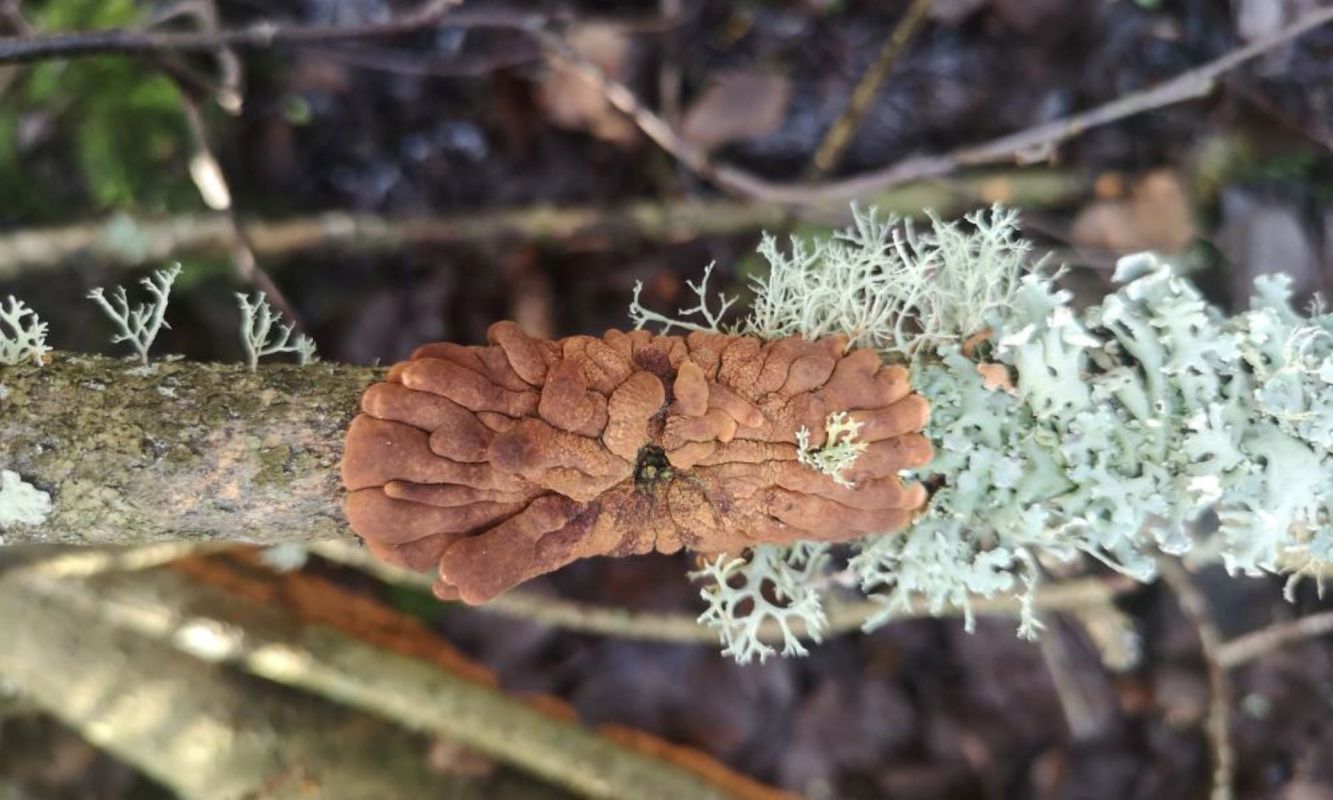Conservationists in England are rolling up their sleeves and putting on gloves in an effort to save, well, gloves — willow gloves, to be exact — a critically endangered fungus named for its resemblance to the article of clothing.
As detailed by the Guardian, willow gloves grow on dead trees. They are found in only two woodlands, and most live on a single fallen tree. In an effort to save the fungus from extinction, a few fingers were removed from its last sites in Scotland and rushed to woodlands in England, where the mycologists attached them to three receptor trees.
The three receptor sites are all protected sites chosen for their abundance of decaying wet willow wood for the fungus to live on. Cumbria, one of the sites, was the last recorded site of a living willow glove before its extinction in England about 50 years ago.
It is a complicated move, but experts will monitor the fungus closely over the next five years, and it will hopefully pay off in spades.
"We have a responsibility to all species in this country to ensure they have a future and fungi are no different. This is a species that is hanging on by a thread," said Matt Wainhouse, fungi and lichen senior specialist for Natural England. "This is a really exciting chance for us to start learning about how we can bring this species back and … out of its threatened status."
As the world continues to see the effects of rising temperatures, conservationists are busier than ever trying to save plant, animal, and insect species from going extinct. When a species is lost, it has ripple effects, forever changing the entire ecosystem.
If willow gloves remain living in only one area, they could be very easily wiped out. Moving them to new places without harming the remaining Scottish population will hopefully give them a fighting chance.
"It's a stunning, almost unique-looking fungus with an incredibly niche lifestyle," said Chris Knowles, the mycologist leading the operation. "It is so interesting, exciting and not fully understood yet that it would be a terrible thing to lose."
Join our free newsletter for cool news and cool tips that make it easy to help yourself while helping the planet.









